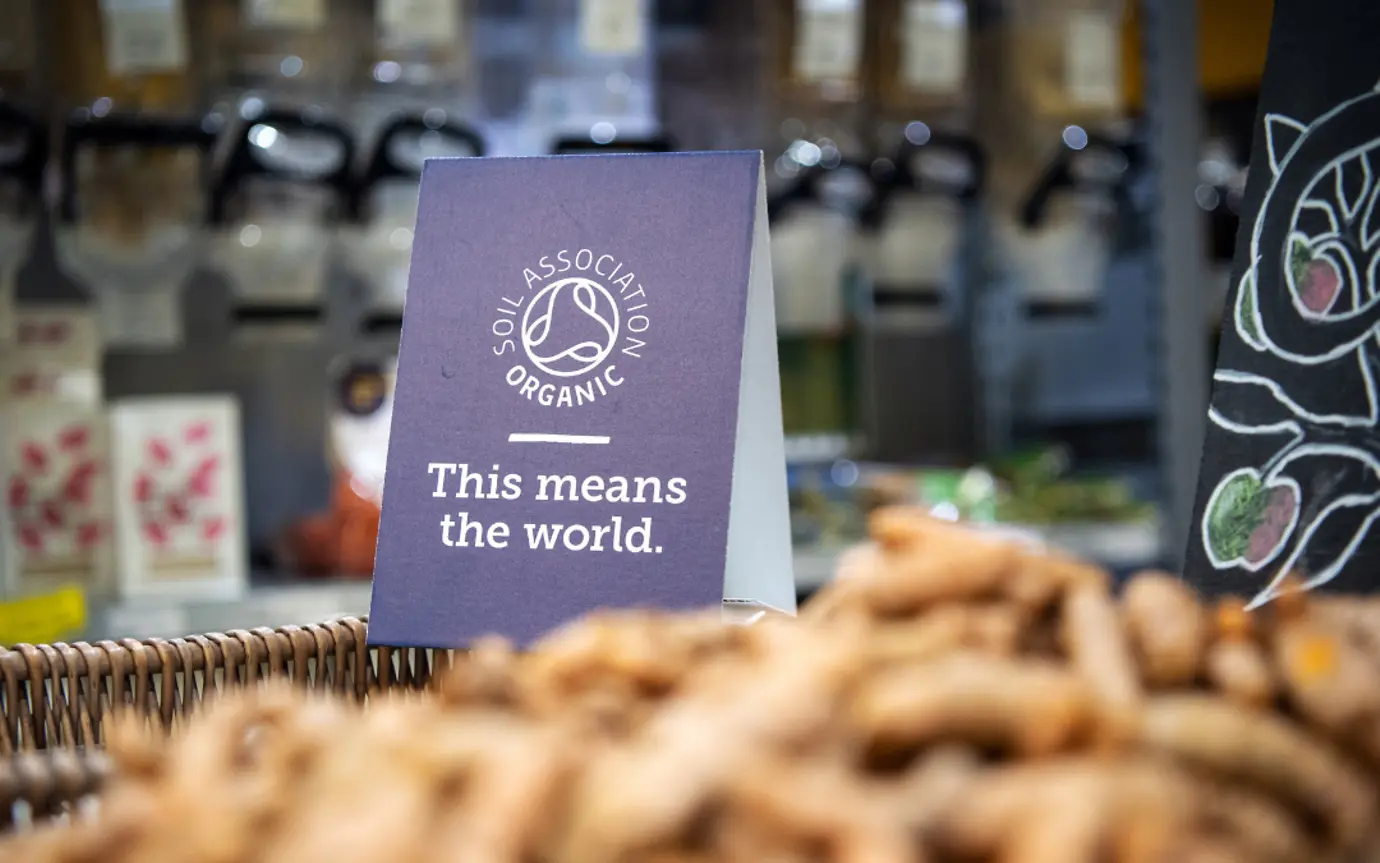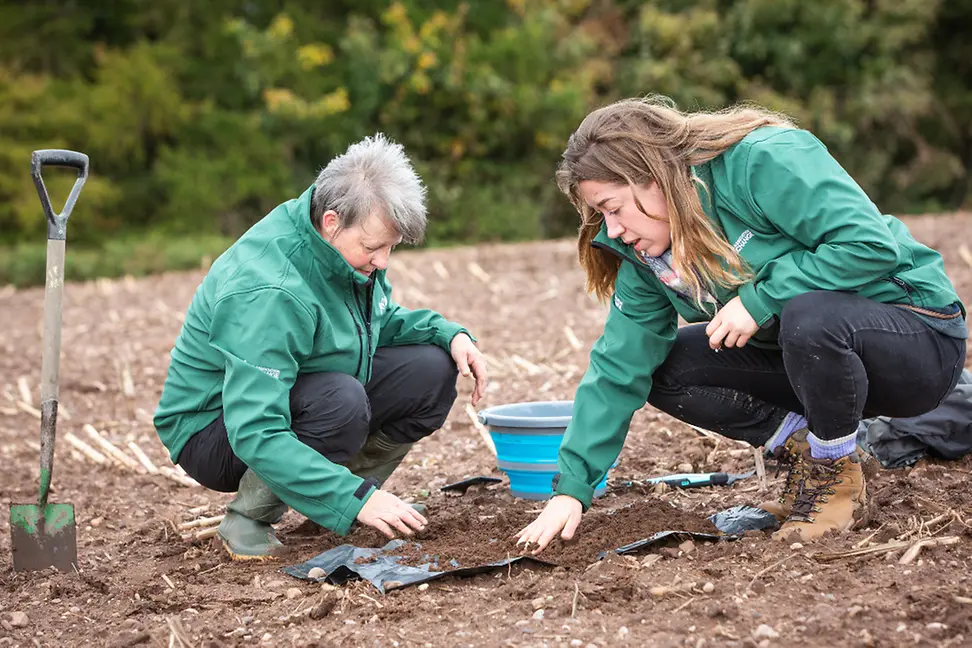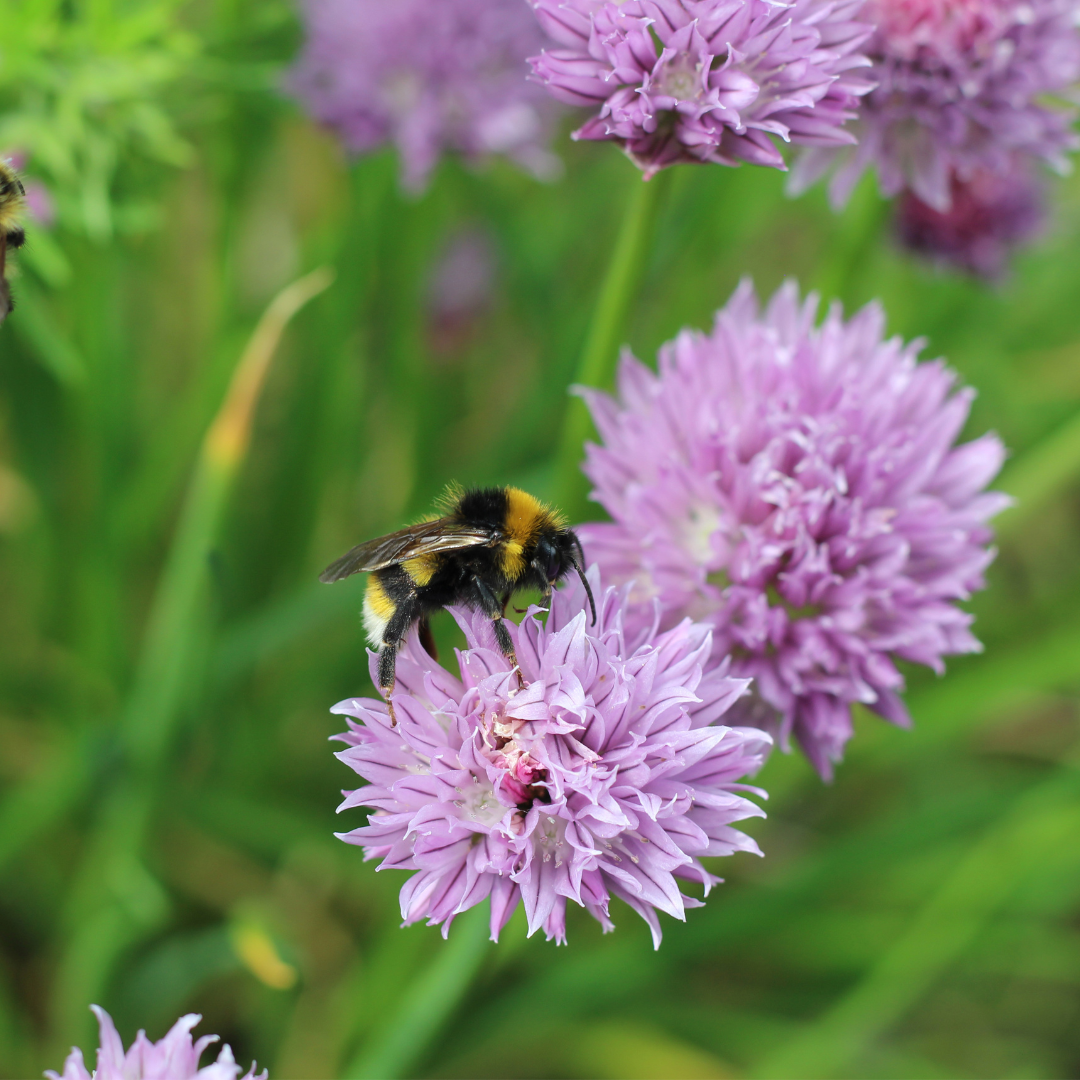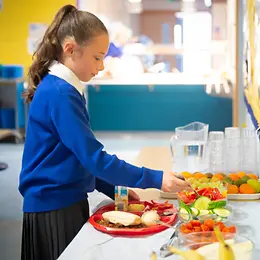On the eve of the 53rd year since the inaugural Earth Day, Lucy Ritchie spoke to James Cashmore, Managing Director at the Soil Association, to shine a light on what Earth Day means for us, for businesses and for the planet.

Every year on 22nd April, Earth Day marks the anniversary of the birth of the modern environmental movement. The first Earth Day took place 53 years ago in 1970. Today, Earth Day is widely recognised as the largest secular observance in the world, marked by more than a billion people every year as a day of action to change human behaviour and to create global, national and local policy changes.
We all live in a fine balance with nature and, when we tip the scales, our wildlife, our climate and our health suffer. But by working with nature instead of against it, we can restore our future – and food, farming and forestry will help get us there. For over 75 years, the Soil Association has worked on many fronts to help everyone farm sustainably and eat well, to feel connection to nature, and to live in a way that helps people and planet to thrive.

Our mission as a charity is to join forces with nature for a better future: a world with good health, in balance with nature, and a safe climate. We work with everyone to transform the way we eat, farm and care for our natural world. As well as advocating for change, we build real solutions from the ground up (such as the organic standards, our Food for Life programme, and now Soil Association Exchange) to prove what is possible and to embed innovative solutions into policy and markets.
Our work spans nature-friendly farming and forestry, with good lives for farm animals, thriving biodiversity and sustainable business models. And we also work to make good food accessible to everyone; with nutritious and ethically produced food helping us all to eat and live well. It is all linked – and it’s by making connections that we will make it happen.
Our five big themes for the year focus on ensuring that:

Across each of these themes, we look to show what’s possible by encouraging and supporting best practice on the ground, to bring this evidence to policymakers and to develop innovative solutions that the world can then ‘take on’.
In many ways, we’re an Innovation Centre - but we shine a light on and look to support and encourage, innovation wherever it is taking place – building a movement with both the appetite and the capability to eat, farm and care for the natural world in ways that secure a more healthy, more resilient and safer future for us all.
The Soil Association helps us all make good choices through its certification stamp – can you tell us what it means when we see one?
The Soil Association organic symbol is a “shortcut” to reassurance and trust within a crowded and often confusing market of environmental claims. The symbol demonstrates the farmer or producer’s commitment to working with nature, not against it, for the benefit of wildlife, people and planet.
No other defined system of farming and food production comes close to delivering so many benefits for wildlife, society and the natural world. Organic farmers work to a strict set of standards, which must legally comply with strict regulation (both in the EU and elsewhere), to ensure that their farms sustain the health of Soils, Ecosystems, Animals and People. These standards are built on the key principles of organic agriculture: health, ecology, care, and fairness.
Certification is legally required to grow, process or market organic products, and all organic farms and companies are inspected by a certification body at least once a year. This means when you see the organic symbol, you can trust that the food and drink you buy has been made in a way that is better for people, animals and wildlife, and respects the natural environment.
Our Food for Life (FFL) programme is about making good food the easy choice for everyone – making healthy, tasty and sustainable meals the norm for all to enjoy, reconnecting people with where their food comes from, teaching them how it’s grown and cooked, and championing the importance of well-sourced ingredients.
We work with schools, nurseries, hospitals and care homes, helping them build knowledge and skills. This engages children and parents, staff, patients and visitors, caterers, carers and the wider community to create a powerful voice for long-term change.

Education is a key part of FFL and there’s no better way of helping children understand where their food come from than spending time in, and with the soil – whether that’s on a farm, in a school or nursery garden, in a raised bed or simply in a container – in fact, anywhere where it’s possible to grow.
Over the years, the programme has introduced hundreds of thousands of children to the wonders of that vital, fragile layer of earth on which we all depend. And we know FFL’s ‘whole school approach’ works – independent evaluation shows, for example, that children in FFL schools are twice as likely as those in similar non-FFL schools to eat their ‘five a day’ fruit and veg, eating not only more at school (where our FFL ‘Served Here’ programme assures over 1.5m school lunches per day as healthy and sustainable) but also more at home too – setting the habits of a lifetime.
Find out more about the Soil Association here.
This communication is provided for information purposes only. The information presented herein provides a general update on market conditions and is not intended and should not be construed as an offer, invitation, solicitation or recommendation to buy or sell any specific investment or participate in any investment (or other) strategy. The subject of the communication is not a regulated investment. Past performance is not an indication of future performance and the value of investments and the income derived from them may fluctuate and you may not receive back the amount you originally invest. Although this document has been prepared on the basis of information we believe to be reliable, LGT Wealth Management UK LLP gives no representation or warranty in relation to the accuracy or completeness of the information presented herein. The information presented herein does not provide sufficient information on which to make an informed investment decision. No liability is accepted whatsoever by LGT Wealth Management UK LLP, employees and associated companies for any direct or consequential loss arising from this document.
LGT Wealth Management UK LLP is authorised and regulated by the Financial Conduct Authority in the United Kingdom.